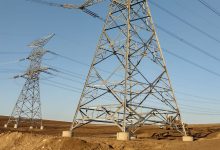ACUE: Budget Rectification Covers Less than 25% of the Energy Price Caps Financing Needs
The final decision on the budget rectification will be taken by mid-August, the Prime Minister of Romania Nicolae Ciuca announced last month. Thus, both the budget execution for the first six months, and the indicator aimed at reducing expenditure for goods and services by 10% will be taken into account, Nicolae Ciuca stated.
According to a draft published on the website of the Romanian Finance Ministry, the Ministry of Labour and Social Solidarity, the Ministry of Investments and European Projects, the Ministry of Health, the Ministry of Energy, and the Ministry of Finance are going to receive the largest amounts in the budget rectification.
The budget rectification provides for increased revenues by over 21 billion lei (almost 4.3 billion Euros), and for an increased budget deficit, by 2.64 billion lei (almost. 538 million Euros). The positive budget rectification made by the Finance Ministry covers interest rate payments, securing the reserve fund available to the Government and state aid for some companies. As to the Energy Ministry, the extra money is intended for personnel expenses and the support scheme for compensating electricity and natural gas prices.
The budget rectification covers less than 25% of the energy price caps financing needs, exposing to a major risk the functioning capacity of the whole energy sector, the Federation of Associations of Energy Utility Companies (ACUE) warns.
- The amount stipulated at the current budget revision, of RON 2.5 billion for the Ministry of Energy, represents only 7.7% of the financing needs, estimated by the Ministry of Energy[i] (RON 31 billion), to cover the commitments assumed by the Government, only through GEO 27/2022, until the end of 2022, respectively payments for the differences between the real price of bills for non-household consumers and the capped price of energy.
- The amount stipulated at the current budget revision, of RON 7.3 billion for the Ministry of Labour and Social Solidarity[ii], for the entire chapter ‘Social assistance’, is well below the financing requirement estimated by the ACUE Federation at the request of the authorities (8.4 billion lei) to cover the commitments assumed by the Government through GEO 27/2022, by the end of 2022, respectively payments for the differences between the real price of household bills and the capped price of energy.
The current budget revision does not include the amounts necessary to cover the energy price caps assumed by the Romanian state for the period April – December 2022 and exposes to a major risk the capacity of the entire energy sector to function.
In the local and international context, marked by a sharp increase in energy prices and a lot of uncertainties regarding the security of supply, the decision to ‘sub-budget’ a support scheme assumed by the Romanian state, benefiting about 90% of household and non-household customers, represents an additional major risk, seriously affecting the resilience of the entire energy sector.
The authorities have full visibility of the energy market and do not have to wait, as they said, for April settlements to correctly estimate the financing needs. It is worrying that the authorities do not have a perspective of the evolution of the market, and they dodge from the obligation to secure the necessary funding, by invoking delays in the settlement process, which were also created by the state institutions, through delays in defining procedures, which were also unclear and defective.
“The money is not for suppliers, but for energy consumers. The suppliers are allocating in advance, from their own resources, this support for the clients. Thus, directly, and immediately, this decision risks a blockage in the supply activity, but the subsequent impact will be felt at the level of the entire energy sector and, ultimately, at the final customers,” says Daniela Daraban, Executive Director of ACUE, Federation of Associations of Energy Utility Companies.
For the draft budget amendment submitted to public debate, ACUE considers that the Ministry of Public Finance has the duty to ensure:
- Realistic budgeting of commitments made to final customers through cap price schemes in force.
- Adapting working scenarios to market reality, to ensure the optimal functioning of the energy sector.
- Transparency in the prior establishment and authorization of public revenues and expenditures.
At the same time, for the optimal implementation of support schemes, ACUE considers that the public institutions involved in the settlement process have a duty to ensure:
- Recovery of the 5-month gap for settlement of measures undertaken for support schemes, including the option of deducting outstanding amounts from suppliers’ tax obligations and/or the delay of chain payment deadlines.
- A settlement process within the legal framework (45 days), by adopting clear, explicit, and transparent evaluating procedures for assessing payment requests.
Suppliers’ mission is to continue offering energy to their customers. Failure to cover the amounts committed through GEO 27/2022 on time and at the real value, makes vulnerable the suppliers’ ability to support energy procurement, cold season storage, and financial flow on the chain, with an impact on the stability of energy supply, for industries and for every citizen. The role of suppliers – to collect through the final price on the invoice, all costs associated with the energy sector (production, transmission, distribution, taxes, VAT, excise duties, etc.) – is severely affected by under sizing of payment volumes and late settlement.
Given that, due to the price increases recorded in the energy production area, the Romanian state has received record values[iii], (over 11 billion lei only from the taxes on the supplementary incomes) the allocation of under 25% of the estimated financing need for support measures to end customers unbalances the entire national energy sector, while in all EU Member States measures to strengthen the resilience of this sector are recommended.
“Almost 10 months after the adoption of a social policy concept, using energy supply companies as intermediaries and pre-funders, it became clear that the protection schemes adopted so far are difficult to implement and unsustainable,” says Daniela Daraban.
“In order to avoid undesirable effects, we believe it is imperative to review and plan protective measures in line with market realities and in line with good European practice. In this respect, we support the gradual adjustment of cap prices, the provision of direct incentives for consumers, and the targeted protection of low-income customers and economic sectors with high shares of energy costs.”
About ACUE
ACUE is the Federation of Associations of Energy Utility Companies that has assumed the mission of contributing to the development of the energy industry and to the competitiveness of the Romanian economy, by promoting the benefits of the free market, fair competitive practices, and mechanisms that contribute to the proper functioning of the electricity and gas markets. ACUE has 22 members, including major groups in the field of electricity and natural gas, with a total of 24.000 employees and an annual turnover of over 5,5 billion euros. ACUE members represent 56,4% of the total electricity utilities market and respectively 89,9% of the total gas market.
[i] “Ministry of Energy (…) for financing the compensation/capping support scheme electricity/natural gas prices +2.500 million lei (…)”
[ii] Ministry of Labour and Social Solidarity: (…) the title ‘Social assistance’ was supplemented with +7.3 billion lei for social assistance rights for families and children, aid for energy price compensation, indemnities, and rights with reparative character, as a result of the measures approved this year (…)”
[iii] “Other general taxes and duties on goods and services: +11.300,0 million lei. The increase is due to the evolution of the tax on the additional revenues obtained as a result of the deregulation of prices in the natural gas sector (+8.1 billion lei) and the tax applied on the additional income realized by the electricity producers in accordance with Law no. 259/2021 (+3.2 billion lei)”







